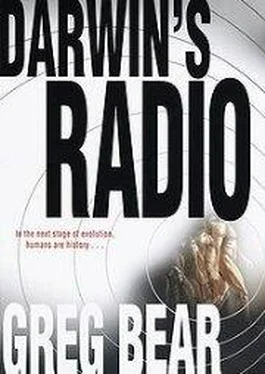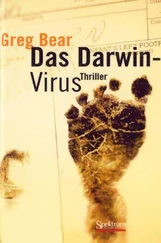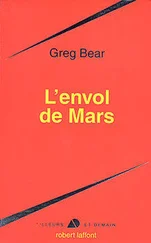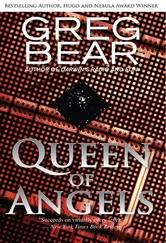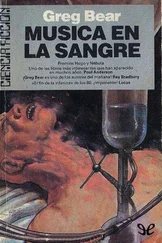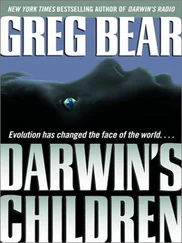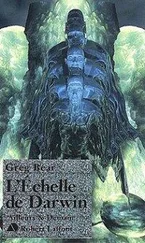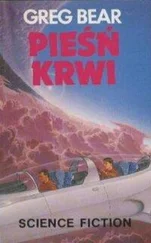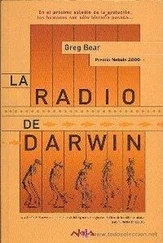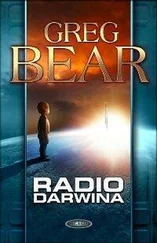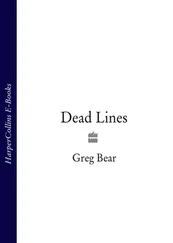The president absorbed this thoughtfully, having heard most of it from Frank Shawbeck and the secretary of Health and Human Services in earlier meetings. Repetition, Dicken thought, was necessary to help lay politicos understand just how much in the dark the scientists really were.
“I still do not understand how something from inside of us could cause so much harm,” the vice president said.
“The devil within,” said the Speaker.
“Similar genetic aberrations can cause cancer,” Augustine said. Dicken felt that was a little broad, and Shawbeck seemed to agree. Now was the moment to deliver his pep talk, as top candidate for the rank of surgeon general, to replace Kirby.
“We are facing a problem new to medicine, no doubt about it,” Shawbeck said. “But we’ve got HIV on the ropes. With that experience behind us, I have confidence that we can make some breakthroughs within six to eight months. We have major research centers all around the country, the world, poised to take on this problem. We have designed a national program that utilizes the resources of the NIH, CDC, and the National Center for Infectious and Allergic Diseases. We divide the pie to consume it more quickly. Never have we, as a nation, been more ready to tackle a problem of this magnitude. As soon as this program is in place, over five thousand researchers in twenty-eight centers will go to work. We will enlist the aid of private companies and researchers around the world. An international program is being planned right now. It all begins here. All we need is a quick and coordinated response from your respective branches, ladies and gentlemen.”
“I don’t see anybody on either side of the House who’ll stand in the way of an extraordinary funding appropriations bill,” the Speaker said.
“Or in the Senate,” added the majority leader. “I’m impressed by the work done so far, but gentlemen, I am not as enthusiastic about our scientific ability as I would like to be. Dr. Augustine, Dr. Shawbeck, it’s taken us over twenty years to even begin to get a handle on AIDS, despite pouring tens of billions of dollars into research. I know. I lost a daughter to AIDS five years ago.” He stared around the table. “If this Herod’s flu is so new to us, how can we expect miracles in six months?”
“Not miracles,” Shawbeck said. “A beginning to understanding.”
“Then how long before we have a treatment ? I ask not for a cure, gentlemen. But a treatment! A vaccine at the very least?”
Shawbeck admitted he did not know.
“We can only proceed as fast as we can harness the power of science,” the vice president said, and looked around the table a little blankly, wondering how this might go over.
“I will say again, I have my doubts,” the majority leader said. “I’m wondering if this is a sign. Maybe it’s time to get our house in order and look deep into our hearts, make peace with our Maker. Quite clearly, we’ve disturbed some powerful forces here.”
The president touched his nose with his finger, his expression serious. Shawbeck and Augustine knew enough to keep quiet.
“Senator,” the president said, “I pray you are wrong.”
As the meeting concluded, Augustine and Dicken followed Shawbeck down a side corridor past basement offices to a rear elevator. Shawbeck was clearly angry. “What hypocrisy,” he muttered. “I hate it when they invoke God.” He shook his arms to loosen the tension in his neck and gave a small, crackling chuckle. “I vote for aliens, myself. Call in theX-Files.”
“I wish I could laugh, Frank,” Augustine said, “but I’m scared out of my wits. We’re in uncharted territory. Half the proteins activated by SHEVA are new to us. We have no idea what they do. This could sink like a rock. I keep asking, Why me, Frank?”
“Because you’re so ambitious , Mark,” Shawbeck said. “You found this particular rock and looked under it.” Shawbeck smiled a little wolfishly. “Not that you had any choice…in the long run.”
Augustine cocked his head to one side. Dicken could smell Augustine’s nervousness. He felt a little numb, himself. Up the wrong creek , he thought, and paddling like sons-of-bitches.
DECEMBER
Never one to sit still for long, Mitch spent a day with his parents on their small farm in Oregon, then took Amtrak to Seattle. He rented an apartment on Capitol Hill, dipping into a former retirement fund, and bought an old Buick Skylark for two thousand dollars from a friend in Kirkland.
Fortunately, this far from Innsbruck, the Neandertal mummies aroused only mild curiosity from the press. He gave one interview: to the science editor of the Seattle Times, who then turned around and labeled him a two-time offender against the sober, law-abiding world of archaeology.
A week after his return to Seattle, the Five Tribes Confederation in Kumash County reburied Pasco man in an elaborate ceremony on the banks of the Columbia River in eastern Washington. The Army Corps of Engineers capped the burial ground with concrete to prevent erosion. Scientists protested, but they did not invite Mitch to join the protest.
More than anything, he wanted time to be by himself and think. He could live on his savings for six months, but he doubted that would be anywhere near enough time for his reputation to cool, for him to land a new position.
Mitch sat with cast outstretched near the apartment’s prominent bay window, looking down on pedestrians on Broadway. He could not stop thinking about the mummified baby, the cave, the look on Franco’s face.
He had placed the small glass tubes containing tissue from the mummies in a cardboard box filled with old photographs and stashed the box in the back of a closet. Before he did something with that tissue, he had to be clear in his own mind about what had actually been discovered.
Self-righteous anger was not productive.
He had seen the association. The female’s wound matched the infant’s injury. The female had given birth to the infant, or perhaps aborted it. The male had stayed with them, had taken the newborn and wrapped it in furs even though it had likely been born dead. Had the male assaulted the female? Mitch did not think so. They were in love. He was devoted to her. They were escaping from something. And how did he know all this?
It had nothing to do with ESP or channeling spirits. A substantial part of Mitch’s career had been spent interpreting the ambiguities of archaeological sites. Sometimes the answers came to him in late night musings, or while sitting on rocks, staring up at the clouds or the starry night skies. Rarely the answers arrived in dreams. Interpretation was a science and an art.
Day in, day out, Mitch drew diagrams, wrote short notes, made entries in a small vinyl-bound diary. He pasted a piece of butcher paper on the wall of the small bedroom and drew a map of the cave as he remembered it. He placed paper cutouts of the mummies on the butcher paper. He sat and stared at the butcher paper and the cutouts. He bit his fingernails to the quick.
One day, he drank a six-pack of Coors in the afternoon — one of his favorite hydrators at the end of long days of digging, but this time, without digging, without purpose, just to try something different. He got sleepy and woke up at three in the morning and went for a walk on the street, past a Jack-in-the-Box, a Mexican restaurant, a bookstore, a magazine rack, a Starbuck’s coffee shop.
He returned to the apartment and remembered to check his mail. There was a cardboard box. He carried it up the stairs, shaking it gently.
From a bookstore in New York, he had ordered a back issue of National Geographic with an article on Otzi, the Iceman. The magazine had arrived packed with newspapers.
Читать дальше
Конец ознакомительного отрывка
Купить книгу
